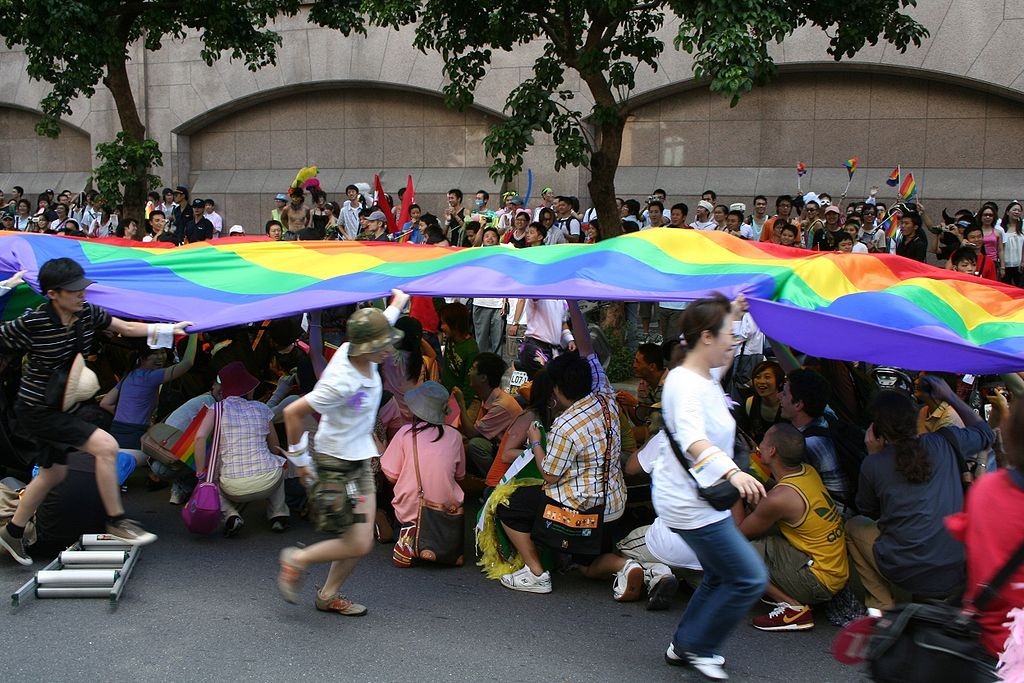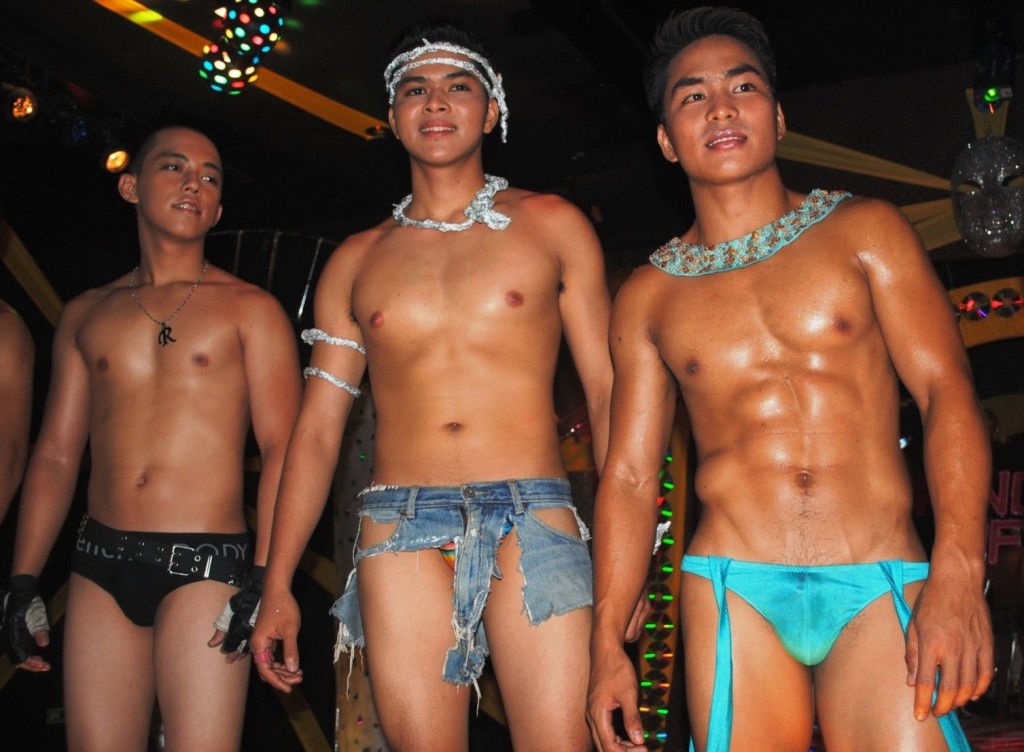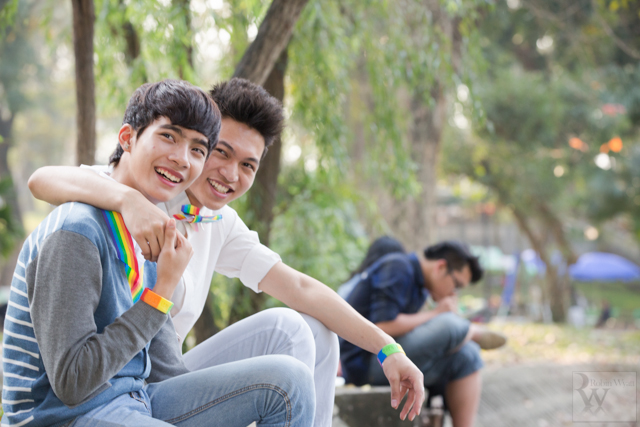The Top 10 Gay Friendly Countries in Asia
The European Union, South America and North America are the most gay friendly places on earth. Generally, Buddhist, Christian and Atheist countries are more accepting of gay people. Africa and Muslim countries are the worst, where gay sexual activity is still illegal which can land you in jail or can even carry the death penalty. If your going on a gay holiday totally avoid Africa and Islam countries.
Asia on the other hand is nether pro or against and in general is quite accepting of gays. Most countries in Asia don’t officially oppose or support gay rights. In fact, Asia has a rich gay history stretching back through the centuries.
The Top 10 Gay Friendly Countries in Asia
1. Israel is the Most Gay Friendly Country in Asia
Gay rights in Israel have blossomed in recent years and its seen as one of the most progressive countries in Asia. Gay sexual activity was legalized in 1988. Tel Aviv is one of the most gay friendly cities in the world and gay tourism is booming.
Israel became the first country in Asia to recognize unregistered cohabitation between same sex couples, making it the only country in Asia to recognize any same sex union thus far. Although same sex marriages are not performed in the country, Israel recognizes same sex marriages performed elsewhere, making it the first and only country in Asia to do so. Discrimination on the grounds of sexual orientation was prohibited in 1992. Same sex couples are allowed to jointly adopt after a court decision in 2008. Gays are also allowed to serve openly in the military.
The government of Israel is styling the country as a haven for the gay community. But it’s more than just gay beaches, parades and clubs. Israel has laws protecting the gay community.

Israel Gay Pride Celebrations – npr.org
2. Thailand
Thailand is one of the most tolerant countries in Asia in regards to homosexuality. Both male and female same sex sexual activity is legal in Thailand. In terms of gay discrimination, positive changes in attitudes and public policy began to occur in Thailand during the 1990s.
In 2002, the Thai Ministry of Health publicly declared that homosexuality was no longer to be regarded as a mental illness or disorder. In 2005, the Thai armed forces lifted its ban on gays serving in the military. Prior to this reform, gay people were exempted as suffering from a mental disorder. In 2012 The government of Thailand formed a committee with policy advisors and gay rights advocates to draft legal recognition for same sex couples. Thailand is viewed as a tourist friendly haven for gay tourists with gay areas in all the major tourist areas.
Homosexuality has been documented for over one thousand years and had some connections to the Buddhist monastic life. Kathoey or ladyboys, have been a feature of Thai society for many centuries and Thai kings had male as well as female lovers. While Kathoey may encompass simple effeminacy or transvestism, it most commonly is treated in Thai culture as a third gender. They are generally accepted by Thai society and Thailand has never had legal prohibitions against homosexuality or homosexual behaviour.
Please visit SiamRoads.com in case you need gay companion and guide in Thailand https://siamroads.com/

In Bangkok you will find Plenty of Gay Bars – bangkok.com
3. Nepal
Nepal has seen rapid political changes during the last two decades. Up until 1990, Nepal was a monarchy under executive control of the King. Faced with a communist movement against absolute monarchy, King Birendra, in 1990, agreed to a large scale political reform by creating a parliamentary monarchy with the King as the head of state and a Prime Minister as the head of the government.
This opened the door for gay reform and the Nepalese government legalised homosexuality in 2007 along with the introduction of several new law sets. In 2007 the Supreme Court ruled that the new democratic government must create laws to protect gay rights and change existing laws that are tantamount to discrimination. Based on a ruling of the Supreme Court of Nepal in late 2008, the government is looking into legalising same sex marriage. The new Nepalese constitution, which is currently being drafted, will include same sex marriage and protection for sexual minorities. In 2008 the Supreme Court directed the government to enact laws enabling equal rights to gay people. The 2011 Nepal census officially recognized a third gender in addition to male and female.
The country’s most prolific gay acitivist, politician and Blue Diamond Society president Sunil Babu Pant has announced plans of the Nepal Tourism Board to promote Nepal as a gay friendly tourist destination. Nepal is quickly becoming the newest gay friendly country in Asia.

Nepals Gay Beauty Pageant – huffingtonpost.com
4. Taiwan
Gay rights in Taiwan have been regarded as some of the most progressive in Asia. Both male and female same sex sexual activity is legal. The executive branch of the Taiwan government proposed the legalization of same sex marriage in 2003, however, the bill received opposition and was not voted on. Discrimination on the basis of sexual orientation in education was banned in 2003 and employment in 2007. The Taiwan Pride Parade in 2012 was attended by more than 65,000 citizens, making it the largest LGBT event in Asia.
A poll of 6,439 adults released in 2006 concluded that 75% believe homosexual relations are acceptable. A poll in 2013 showed that 53% of Taiwanese support same sex marriage and 76% are in favour of equal rights for gay people.
Taiwan as one of the most liberal locations in Asia and is home to one of the biggest and best gay scenes in Asia.

Taiwan Pride Parade – wikipedia.org
5. Japan
There are no explicit religious prohibitions against homosexuality in the traditional religion of Japan, Shintoism or in the imported religions of Buddhism or Confucianism. Japan has had no laws against homosexuality. Thus, gay sexual activity among consenting adults, in private, is legal under Japanese law. Japanese culture and major religions originated in and imported to Japan do not have a history of hostility towards homosexuality. A recent poll indicating that 54 percent agreed that homosexuality should be accepted by Japanese society. Although many political parties have not openly supported or opposed gay rights, there are several openly gay politicians united together in office. A law allowing transsexuals to change their legal gender was passed in 2008. Discrimination on the basis of sexual orientation is banned in certain cities.
Japan’s gay culture is ancient and sophisticated. There are references to homosexual relationships in 11th century diaries and in feudal Japan, homosexuality was recognized between equals. The younger partner in the relationship often was expected to make the first move. In religious circles, same sex love spread to the warrior samurai class, where it was customary for a young guy to undergo training in the martial arts by apprenticing to a more experienced guy. This gay relationship, often formalized in a brotherhood contract, was expected to be exclusive, with both partners swearing to take no other male lovers. The Samurai period was one in which homosexuality was seen as particularly positive. Later when Japanese society became pacified, the middle classes adopted many of the practices of the warrior class.
Today, there is a large gay scene in Japan with heaps of gay bars, clubs, saunas and gay areas in Tokoyo and Osaka and other major cities. There are even public parks which have been cruising spots for hundreds of years and guidebooks devoted to homosexual pleasures published in the 1760’s.

Japan Gay Pride Parade
6. South Korea
Homosexuality in South Korea is not specifically mentioned in either the South Korean Constitution or in the Civil Penal Code. There is a law states that no individual is to be discriminated against on the basis of his or her sexual orientation. Transgender people are allowed to have sex reassignment surgery in Korea after age 20 and can change their gender information on official documents. General awareness of homosexuality remained low among the Korean public until recently, with increased awareness and debate coming to the issue, as well as gay themed entertainment in mass media and recognizable figures and celebrities coming out in public.
South Koreans have become significantly more accepting of homosexuality and gay rights in the past decade, even if conservative attitudes remain dominant. A 2013 Gallup poll found that 39% of people believe that homosexuality should be accepted by society, compared to only 18% who held this view in 2007. South Korea recorded the most significant shift towards greater acceptance of homosexuality among the 39 countries surveyed worldwide. Significantly, there is a very large age gap on this issue. In 2013, 71% of South Koreans aged between 18-29 believed that homosexuality should be accepted, compared to only 16% of South Koreans aged 50 and over. This suggests that South Korea is likely to become much more accepting of gay rights over time.
Seoul, South Korea’s capital and most gay oriented city, has an extensive foreigner friendly gay scene.

Hit Korean Gay Film
7. Philippines
Non commercial, homosexual relations between consenting adults in private is legal in the Philippines, although sexual conduct or affection that occurs in public is not tolerated. Tolerance for gay people has increased over the years due to greater education about sexual orientation and gender identity issues and the growing visibility and political activism of the gay community.
Same sex marriages are not legally recognized and the gay community is not protected by any national civil rights laws. However, Cebu, Albay and Quezon City have anti gay discrimination ordinances. A national bill covering anti discrimination for gays is pending but still has not made it into law. Prevailing social attitudes about sexual orientation and gender identity issues are heavily influenced by the teachings of the extremely homophobic Roman Catholic Church, which has been active in opposing LGBT rights. According to a 2002 survey, 11% of sexually active Filipinos have had sex with someone of the same sex.
The first gay pride parade in Asia and also the Philippines was held 1994 at the Quezon Memorial Circle. The Philippines, an amazing archipelago of 7,000 islands is gradually becoming more gay friendly. Today, there is an increasingly vibrant gay scene in the Philippines with several gay bars, clubs and saunas in Manila as well as various gay rights organizations.

Philippines Gay Bar
8. Vietnam
No laws against homosexuality have ever existed in Vietnam. In fact, many historians believe that homosexuality was never addressed in the nation’s criminal code. Although homosexuality is generally considered a taboo because of the Vietnamese tradition, awareness surrounding gay rights have risen over the last 10 years. A March 2014 poll indicate that 47% of Vietnamese were for same sex marriage.
On the 1st of January 2015, the 2014 Law on Marriage and Family officially went into effect. It states that while Vietnam allows gay weddings, it will not offer legal recognition or protection to unions between people of the same sex. Despite the limitation, the Vietnamese gay community are optimistic that this latest legislation is an important stepping stone. Vietnam’s relaxation of stance contrasts with Vietnam’s neighbours such as Singapore, which forbids same sex marriages. Its estimated that such relaxed policies will attract tourism revenue into Vietnam as it attempts to promote itself as a tolerant and friendly society.
Vietnam is a country of incredible natural beauty, bustling cities, vibrant culture and a slowly emerging gay scene. Gay venues do exist but the gay world in Vietnam is still largely in the shadows but slowly coming out in the open.
You van hire local guide and gay companion here: https://siamroads.com/

Vietnamese Gay Couple – www.robinwyatt.org
9. Cambodia
Gay sexual activity is legal in Cambodia when it involves non commercial acts between consenting adults in private. Traditional Khmer culture tends to be tolerant in this area, even expressly providing support for gay people. Gay rights legislation has not yet been enacted by the ruling government.
The Khmer language recognises male and female as the dominant genders, but also includes the term kteuy (equivalent to the Thai katoey) for a third gender intermediate between the other two.
In 2004, King Sihanouk wrote on his website he was impressed by marriage of same sex partners in San Francisco and that if his people wished for gay marriage to be legalized in Cambodia, he would do so. King Sihanouk also stated that he believed that God views homosexuals, as well as transvestites, as equal because God loves a wide range of tastes.
Cambodia’s first ever gay pride celebration was held in 2003 in the capital city of Phnom Penh. It is now a yearly event that openly celebrates the diversity of Cambodia. Once a taboo subject, there is an increasing acceptance for homosexuality among Cambodians and Buddhism tends to produce a degree of tolerance towards gay people.
Since 2004, the number of open and out homosexuals in Phnom Penh has exploded to approximately 10,000 today. There’s a vibrant emerging gay scene in the capital city, Phnom Penh and other tourist areas like Siem Reap that should not be missed by gay Asia travellers. Cambodian gay guys are not oppressed by colonial law or anti gay religious traditions, although many are pressured to get married, they enjoy their gay nature after work and before going home to their families.
You can hire professional licensed private guide here: https://siamroads.com/

Cambodia Gay Life – globalpost.com
10. China
Homosexuality has been legal in China since 1997. Homosexuality was removed from the Ministry of Health’s list of mental illnesses in 2001. Officially, overt police harassment of gay people is restricted to gay people engaging in gay sex acts in public or gay prostitution, which is also illegal for heterosexuals. Transsexuals are legally allowed to change their gender.
However, despite these changes, no civil rights law exists to address discrimination or harassment on the basis of sexual orientation. The media tends to censor positive depictions of gay couples in films and television shows and households headed by same sex couples are not permitted to adopt children and do not have the same privileges as heterosexual married couples.
The existence of homosexuality in China has been well documented since ancient times. Homosexuality in China was regarded as a normal facet of life in China, prior to the Western impact of 1840 onwards. Many early Chinese emperors are speculated to have had homosexual relationships. The political ideologies, philosophies, and religions of ancient China regarded homosexual relationships as a normal facet of life and in some cases, promoted homosexual relationships as exemplary. Writings from the Liu Song Dynasty claimed that homosexuality was as common as heterosexuality in the late 3rd century. Confucianism and Buddhism focused little on sexuality and homosexual intercourse was seen as neutral because the act has no detrimental or beneficial effect on a person’s life essence.
With gay organizations, legal services, events and festivals around the country and with the emerging power of the middle class, China’s gay scene is evolving. Today, there is a growing gay scene in China with gay bars, clubs and saunas in Beijing and Shanghai and other major cities.

Chinese Guys
NOTES:
Its illegal to have gay sexual activity in Singapore however this law has not been enforced since 1999. Its illegal to have gay sexual activity in Burma, Sri Lanka and most Islam countries throughout Asia.
The top 10 gay friendly countries on earth are Denmark, Norway, Sweden, Netherlands, France, Spain Canada, New Zealand, South Africa and Brazil.
I compiled the list mainly based on the gay protection laws in each country. I’m sure this list and its order of countries will create some interesting discussion and debate. Please post your comments in the comments box below.
Sources: Wikipedia – Utopia Asia – Travel Gay Asia – Global Post – National Public Radio
(c) AsiaGuys.NET
You can read full article here: http://www.asiaguys.net/the-top-10-gay-friendly-countries-in-asia



































